Raghavadarshanam
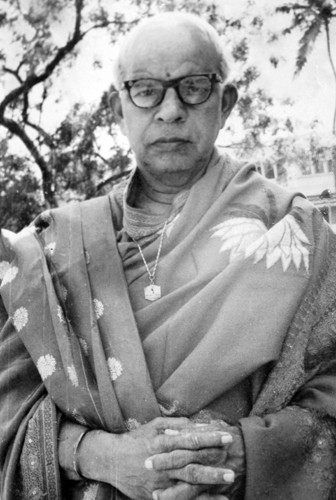
Short Biography
Dr. V. Raghavan occupies a unique place among the galaxy of scholars of the world for his invaluable contributions to Sanskrit language, Indian Heritage and all its allied branches of study. His works are timeless, precious gems which remain a perennial source of information for generations of scholars, researchers and students. His meticulous methodical and masterly technique of research and the dissemination of the knowledge he acquired are worthy of emulation; he was a perfect blend of Sastra(Text) and Prayoga (Practice) in himself as much as he was a firm traditionalist with a modern perspective, both fused seamlessly into all his scholarly endeavors. His erudition, impeccable resourcefulness and his endearing nature to share his knowledge with great generosity to any seeker who came to him, marked him as the most sought after Scholar. There would be hardly anyone in the fields of Sanskrit and Indology who did not come into contact with him or his writings in the course of their research.
Family Members
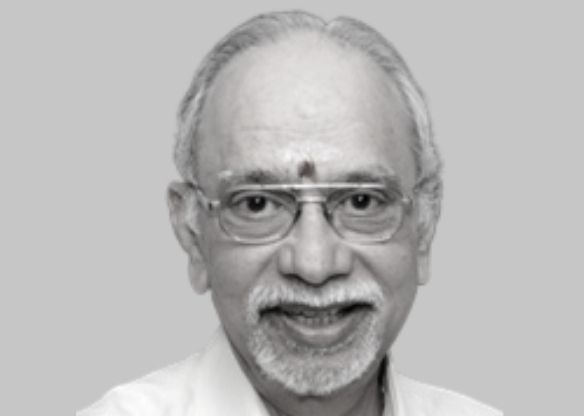
Sri.R.Kalidas
Sri.R.Kalidas the eldest son of Dr.V.Raghavan ,is a chemical Engineer by profession,working for TCI,Sanmar Chemicals, as the Vice Chairman and Managing Director ,positioned at Egypt. A keen rasika of Music, has earlier acted in Sanskrit plays directed by his father Dr.V. Raghavan and trained in playing Mridangam. He is the present President of the “Samskrita Ranga”.
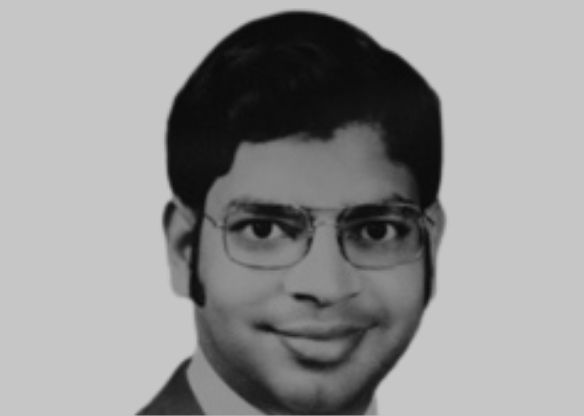
Dr.R.Charudattan
Dr.R.Charudattan,second son of Dr.V.Raghavan is a renowned Plant Pathologist; is presently Emeritus Professor at the University of Florida. He is the President and Chief Operating Officer(CEO) of his own company”BIOPRODEX.INC”. His involvement in the Cultural pursuits and part taking in Sanskrit plays occupied a considerable part of his earlier career, while in India.
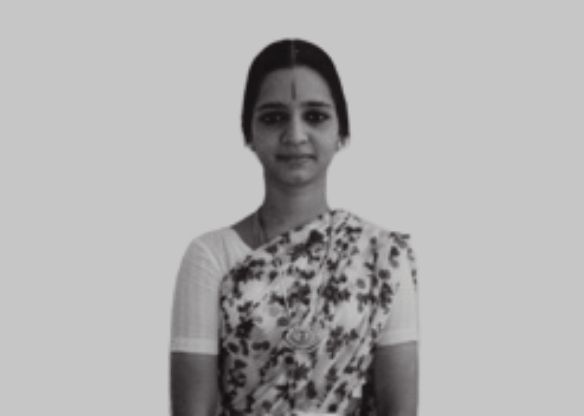
Smt.Priyamvada Sankar
Smt.Priyamvada Sankar, first daughter of Dr.V.Raghavan is a veteran Bharatanatyam exponent having been the prime student of the legendary Smt.T.Balasaraswati and Sri.K.Ganesan..A Gold Medalist, majoring in Sanskrit, Priyamvada is a well trained Carnatic Vocalist, a senior actor in Samskrita Ranga’s Sanskrit Plays (1958-68).She successfully runs her own Bharatayanam School in Montreal, Canada, to propagate her chosen tradition.Priyamvada has received several Awards and Accolades including the highest honor of Canada for the Multi cultural Contribution and is widely recognized and respected as a National Artist of Canada.
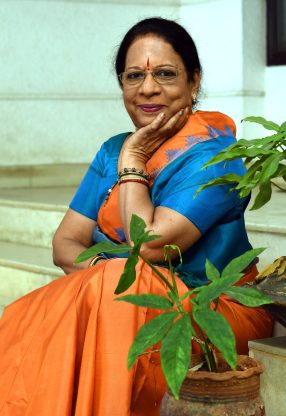
Smt.Nandini Ramani
Smt.Nandini Ramani, second daughter of Dr.V.Raghavan is a senior Bharatanatyam exponent having trained under the legendary Smt.T.Balasarawati and Sri K.Ganesan.She is well trained in Vocal Carnatic Music under Prof.B.Krishnamoorthy and specialized training with Smt.T.Mukta.
Timeline
-
22nd August 1908Birth
- Birth in holy town of Tiruvarur, Tamil Nadu
-
1915
- Lost both his parents. His mother’s elder sister Kamalamba took charge of the family.
Came under tutelage of Pandit Sengalipuram Appaswamy Shastrigal.
- Lost both his parents. His mother’s elder sister Kamalamba took charge of the family.
-
1925
- Admission into the Intermediate Course studying Ancient History (Greek and Roman), Logic, and Sanskrit. He frequently visited the Ramakrishna Math and had read Vivekananda’s lectures and as timepassed, his interest in Vivekananda-Ramakrishna Movement intensified.
-
1930
- Studied Nyaya-Vaisheshika and Samkhya-Yoga as special subjects, besides Comparative Indo-European Philology and other general subjects in Sanskrit under Mahamahopadhyaya Professor S. Kuppuswami Sastri.
Inspired by Sri Sirkazhi Sundarachariar ,he took to the reading and mastering of the Bhagavata and Mahabharata systematically, getting by-heart several portions of the Bhagavata especially.
- Studied Nyaya-Vaisheshika and Samkhya-Yoga as special subjects, besides Comparative Indo-European Philology and other general subjects in Sanskrit under Mahamahopadhyaya Professor S. Kuppuswami Sastri.
-
1931
- Along with K.V. Ramachandran he frequently visited Tanjore villages to bring to light the traditional Natakas of the Bhagavata-s at Merattur, Sulamangalam etc.,
-
1932
- Presenta a paper on “Some Names in Early Sangita Literature”,in the Madras Music Academy’s annual conference session.
Writes film scripts for stories from the Epics, Puranas and Sanksrit Classics, at the request of several friends, without the knowledge, skill or inclination to make money out of them. Also involved in producing scenario, dialogue and general advice for three of the first ever Talkies, Sita Kalyanam, Chandrasena and Jalaja.
Writes review for the well-known magazines of yester years, Sound & Shadow and Triveni, on performances of Bharatanatya, Carnatic music, Harikatha and other special topics.
- Presenta a paper on “Some Names in Early Sangita Literature”,in the Madras Music Academy’s annual conference session.
-
1934
- Joins the Department of Sanskrit, University of Madras as a Ph.D.student. Raghavan worked on Bhoja’s Srngara Prakasa, a text on Aesthetics Poetics and Dramaturgy, and Schools of Indian Thought, bearing on Literature and general criticism. This was evaluated by Professor Sylvan Levi, F.W. Thomas and A.B. Keith. Professor Louis Renou, Paris hailed the work as “the most encyclopaedic Indian text on Sanskrit Poetics.”
-
1935
- Becomes a lecturer and later a Professor and Head of the Department.
Begins the work on the New Catalogus Catalogorum (NCC)
- Becomes a lecturer and later a Professor and Head of the Department.
-
1936
- Starts contributing to Journal of Oriental Research on the first detailed study of the subject of the Number of Rasas and in particular.
Rasa, Aucitya and Dhvani
- Starts contributing to Journal of Oriental Research on the first detailed study of the subject of the Number of Rasas and in particular.
-
1940
- First edition of Number of Rasas brought out by The Adyar Library and Research Centre, Chennai
-
1944
- Becomes the Secretary of Madras Music Academy.
-
1951
- Is selected as the Secretary of the All India Oriental Conference (AIOC).
-
1953
- Establishes a Bharatanatya school affiliated to the Madras Music Academy.
Awarded the P.V. Kane Gold Medal by Asiatic Society
Leaves on tour to Europe as a representative of the University of Madras and visits libraries, museums, and research institutions.
- Establishes a Bharatanatya school affiliated to the Madras Music Academy.
-
1954
- Toured 13 countries of Europe, visited University centres of Sanskrit and allied studies, Institutes, Museums, Libraries; delivered lectures and also prepared a catalogue of 20,000 manuscripts of unsurveyed Sanskrit collections in Europe and also published a book called SANSKRIT AND ALLIED INDO-LOGICAL STUDIES IN EUROPE (1954) University of Madras.
-
1956
- Publishes a technical book on the art of Bharatanatyam covering both the aspects of shastra and Prayoga of the art-form.
Publishes "The Indian Heritage" an Anthology of Sanskrit literature, selected and translated in a meticulous way, chosen by the UNESCO as one of the best in the Collection of Representative works in the Indian Series.
- Publishes a technical book on the art of Bharatanatyam covering both the aspects of shastra and Prayoga of the art-form.
-
1958
- Establishes “Samskrita Ranga” a forum for Sanskrit drama. Produces Kalidasa’s Malavikagnimitram in Delhi.
Becomes the sole Editor of the Journal of Madras Music Academy.
Publishes Sri Muttuswamy Dikshita Charita Mahakavyam, a Sanskrit Epic Poetry on the life and musical career of one of the Trinity of Carnatic music. Is bestowed with the title of Kavi Kokila by His Holiness Sri Chandrasekharendra Sarasvati Mahaswamigal.
Becomes the Editor of the Samskrita Pratibha of the Sahitya Akademi
Visited U.S.S.R., sponsored by Government of India in an Indological Delegation; visited Oriental Institutes, Libraries and manuscript collections.
- Establishes “Samskrita Ranga” a forum for Sanskrit drama. Produces Kalidasa’s Malavikagnimitram in Delhi.
-
1962
- Awarded the national honour of Padmabhushan by the President of India
-
1963
- Visited Nepal twice for work on manuscript collections in Kathmandu
-
1964
- Starts delivering “Patel Memorial Lectures” of the I & B Ministry of Government of India, covering life and devotional outpourings of the saint-singers.
Toured United States on a leadership invitation of the U.S. State Department and visited University Centres, Libraries,etc., lectured and surveyed Sanskrit manuscript collections in U.S.
Toured Japan, Philippines, Vietnam, Cambodia, Thailand and Malaysia; visited centres of Oriental studies and temple monuments and Museums.
- Starts delivering “Patel Memorial Lectures” of the I & B Ministry of Government of India, covering life and devotional outpourings of the saint-singers.
-
1966
- Composes the verse “Maitrim Bhajata” for World Peace and Harmony at the instruction of His Holiness Sri Chandrasekharendra Sarasvati Mahaswamigal and sung first by Smt. M.S.Subbulakshmi for her concert in the United Nations in 1966
-
1967
- Undertakes the task of bringing together Rt.Hon’ble V.S.Srinivasa Sastriar and others to create a permanent research establishment in memory of his guru M.M.Kuppuswami Sastri, who was also the first Principal of the renowned Madras Sanskrit College.
Establishes Kuppuswami Sastri Research Institute, and dedicated major part of his life in making this Institute a centre of fine scholarship and research, drawing the attention of scholars from all over the world.
- Undertakes the task of bringing together Rt.Hon’ble V.S.Srinivasa Sastriar and others to create a permanent research establishment in memory of his guru M.M.Kuppuswami Sastri, who was also the first Principal of the renowned Madras Sanskrit College.
-
1968
- Retires from University of Madras.
-
1969
- Becomes Jawaharlal Nehru Fellow and works on Critical edition of Srngara Prakasha.
-
1970
- Fellowship of the Jawaharlal Nehru foundation, New Delhi, for preparing an edition from manuscripts of ‘Bhoja’s Srngaraprakasa’.
-
1971
- Attended the 28th International Congress of Orientalists in Canberra, Australia.
Attended a Seminar in East-West Centre, University of Hawaii and toured some University centres in U.S.
Visited some Universities in Canada on a lecture tour.
Visited U.S.S.R. for the second time and also Bulgaria on a Government of India cultural exchange programme.
(1971- 1974) Gave special courses of lectures at many Universities in India and inaugurated or participated in or presided over several Seminars and Conferences at different centres; was Chairman of a Committee for re-organising the Sanskrit College of Banaras Hindu University.
- Attended the 28th International Congress of Orientalists in Canberra, Australia.
-
1972
- Becomes Chairman of the First World Sanskrit Conference of the Ministry of Education and President of International Association of Sanskrit Studies.
-
1973
- Attended the 29th International Congress of Orientalists, Paris.
Elected first President of the International Association of Sanskrit Studies set up in Paris.
- Attended the 29th International Congress of Orientalists, Paris.
-
1974
- President and steered the Second World Sanskrit Conference at the University of Turin, Turin, Italy.
Visited Mauritius at the invitation of the Government of that Country to advise them on the development of Indian studies there.
Chairman of the Organizing Committee of the International Ramayan Conference, Sahitya Akademi, New Delhi and steered the Conference.
- President and steered the Second World Sanskrit Conference at the University of Turin, Turin, Italy.
-
1975
- Visited for the second time Bangkok and Tokyo in connection with his work on Ramayana outside India.
Participated in the International Conference on Sanskrit. Drama at the East-West Centre, University of Hawaii, Honolulu.
Was Resident Professor at University of Pennsylvania, Philadelphia, U.S.
Visited U.S. and Canadian University Centres and gave lectures.
Visited Indonesia (Java and Bali) for an International Conference of the Asian Historians and visited monuments in Central Java and Bali and studied the object of Ramayana in Indonesia.
Visited Colombo, Ceylon.
- Visited for the second time Bangkok and Tokyo in connection with his work on Ramayana outside India.
-
1976
- Visited Paris for the 75th Anniversary of the EFEO and the International Conference on Historical Ecology in Paris.
-
1978
- Visited centres in Burma on a UNESCO project for Preserving and Cataloguing Pali manuscripts.
-
1979
- Attains the holy feet of Lord Rama on the Ramanavami Day
Awards

- Title of Kavi Kokila from Paramacarya of Kanci Muttu.
- Padma Bhusan from President of India.
- Fellow, Central Sangeet Natak Akademi.
- Fellow, Sahitya Akademi, New Delhi.
- Hon. Degree of D. Litt., Vacaspati, Sanskrit University, Benaras.
- Award of P.V. Kane Medal, Asiatic Society, Bombay.
- Award of First Prize for best Creative Writing, Sanskrit Play-Anarkali, Govts. of Uttar Pradesh (Kalidasa Puraskar) and Madhya Pradesh.
- Award of Best prize for book on Sanskrit Research, Sahitya Akademi.
- Award of Hon. Membership, EFEO, Paris.
- Award of Hon. Membership, Austrian Academy of Sciences, Vienna.
- Award of Gold Medal for Distinguished Research from the order of St. Martin, Austria.
- Title of Sakala – Kala – Kalapa from Paramacharya of Kanchi Mutt.
- Vidvatkavindra, Akhila Bharata Samskrta Bhasa Samiti, Madras.
- Award of Nehru Fellowship, Jawaharlal Nehru Foundation, New Delhi.
- Award of Certificate of Merit, Annual Conference, Music Academy, Madras.
Important Conferences, Lecture-Tours and Projects undertaken National and International
- New Catalogus Catalogorum of Sanskrit and allied Manuscripts.
- Catalogue of 20,000 Manuscripts of unsurveyed Sanskrit Collection in Europe.
- Survey of Manuscript Collections in Oriental Institutes and Libraries of USSR on Govt. Delegation.
- Survey of Manuscript Collections in Kathmandu, Nepal.
- Invitation from U.S. State Dept. for survey of Manuscript Collections and Lectures in U.S.
- Tour and Lectures – Japan, Philippines, Vietnam, Cambodia, Thailand and Malaysia – Survey of Oriental Studies Centres.
- Attended 28th International Conference of Orientalists in Canberra, Australia.
- Attended seminar and Paper presentation in East-West Centre, University of Hawaii and tour of University Centres in U.S.
- Visits and Lectures – University Centres in Canada.
- Second visit to USSR, Bulgaria under Govt. of India Cultural exchange programme.
- Chairman of Committee for re-organising the Sanskrit College of Benaras Hindu University.
- Chairman of Academic Committee of the First World Sanskrit Conference of the Ministry of Education, New Delhi and steering of the Conference in 1972.
- 28th International Congress of Orientalists, Paris.
- Elected first President of the International Association of Sanskrit Studies set up in Paris.
- Second visit – Bangkok and Tokyo in connection with work on Ramayana outside India.
- Participated in the International Conference on Sanskrit Drama at the East-West Centre, University of Hawaii.
- Resident Professorship of University of Pennsylvania, Philadelphia, U.S.
- Lectures in U.S. and Canadian University Centres.
- Visit and Lectures – Indonesia (Java & Bali for an International Conference of the Asian Historians and undertook study on Ramayana in Indonesia.
- Visited Colombo, Ceylon.
- Presidentship and steering of the Second World Sanskrit Conference, University of Turin, Italy.
- Invited to Mauritius as invitee of that Govt. for setting up and development of Indian Studies.
- Chairman of Organising Committee, International Ramayana Conference, Sahitya Akademi, New Delhi.
- General President of 21st Session of AIOC, Srinagar.
- Membership, Steering Committee, Delhi Session of International Congress of Orientalists.
- Membership of Sanskrit Commission and all its bodies, Govt. of India.
- Presidentship, Publication Committee, Central Sanskrit Board.
- Chairmanship, Central Sanskrit Board.
- Membership, Indology Committee and Corresponding for RareTexts Edition Scheme, Govt. of India.
- First Convocation Address of Sri Kameshwar Singh Sanskrit University, Darbhanga and setting up of the nature and work of Sanskrit University.
- Attended International P.E.N. Conference, Dublin.
- Attended International Music Education Conference of UNESCO, Brussels.
- Attended the Association of British Orientalists, Edinburg.
- Attended Annual Meeting of the American Oriental Society, Newyork.
- Attended Association for Asian Studies, Washington.
- Attended the Annual Meeting of The American Philosophical Society, Philadelphia.
- Attended the International Society for the History of Religion, Newyork.
- Conducted the All-India Sankara – Sanmata Conference under the guidance of H.H. Paramacarya of Kanchi and presented Papers.
- Lectures on the Concept of Culture, Indian Institute of World Culture, Bangalore.
- Presided over All Kerala Sanskrit Convention of the Akhila Kerala Samskrta Parishad.
- Participated in Guru Nanak Quin – Centenary Seminar, Sahitya Akademi, New Delhi.
- Participated in Guru Nanak Quin – Centenary Seminar, Sahitya Akademi, Madras.
- Participated in Seminar on Gandhi in Sanskrit Literature, University of Mysore.
- Presented the prestigious Patel Memorial Lectures – “The Great Integrators-Saint Singers” (Printed).
- Banikanta Kalkati Memorial Lectures, University of Gauhati – “Sanskrit and Allied Indian Studies in U.S.” (Printed).
- Lectures at Bharatiya Vidya Bhavan, Bangalore Centre – “Universal Love and World Unity”.
- Prof. L. Venkataratnam Lectures, Madras University – “The Greater Ramayana” (Printed).
- UGC Lectures at Delhi University – “Sanskrit Studies in the U.S.S.R.”
- Seminar on Sri Aurobindo in Indian Literature, Sahitya Akademi, Madras.
- Sri Aurobindo Seminar of Sahitya Akademi, New Delhi, “Sri Aurobindo and Sanskrit”.
- Sri Aurobindo National Seminar – “Sri Aurobindo’s Aesthetics”.
- Lectures at B.J. Institute of Learning and Research – “Festivals, Sports and Past times of India” (Printed).
- Rao Bahadur Kamalashankar Pranshankara Trivedi Lectures at South Gujarat University – “The Ramayana in Greater India” (Printed).
- Dr.H.R. Karnik Endowment Lectures, University of Bombay – “Sanskrit Ramayanas other than Valmiki’s” (Printed).
- International Seminar on 150th Birth Anniversary of Max Mueller, New Delhi – presented Paper on “The Sacred Books of the East” Pa.
- 1978 – Burma.
Membership in Committees
- Sanskrit Commission, Govt. of India.
- Central Sanskrit Board and Indology Committee.
- Chairman, Publication Committee of the Rashtriya Sanskrit Samsthan, Ministry of Education.
- New Sanskrit Dictionary Project, Pune.
- Ramayana Project, Baroda.
- Purana Project, All India Kashi Raja Trust, Benaras.
- Convenor – Sanskrit, Sahitya Akademy.
- Member, Sanskrit Advisory Board, National Book Trust.
- Member, Central Sangeet Natak Akademi.
- Executive Board Member, Tamil Nadu State Sangita Nataka Sangam, Madras.
- General Secretary, AIOC.
- General President, AIOC.
- Special Advisor for Sanskrit, AIR.
- Advisor for many Manuscripts Libraries.
- Long-time Secretary / Editor, Madras Music Academy and its Publications.
- Founder – Secretary / Director, The Kuppuswami Sastri Research Institute, Madras.
- Member, Indian Advisory Committee, American Institute of Indian Studies.
- Recipient of Fellowship, Jawaharlal Nehru Foundation.
- Chairman, Committee for re-organisation, Sanskrit College, Benaras Hindu University.
- First President of International Association for Sanskrit Studies, Paris.
- Chairman, Organising Committee, International Ramayana Conference, Sahitya Akademi, New Delhi.
- Chairman, Academic Committee, First World Sanskrit Conference, Ministry of Education, New Delhi.
- President, Samskrita Academy, Madras.
- President, Madras Natya Sangh.
- President, Samskrita Ranga, Madras.
- Member, Arts Purchases Committee, Ministry of Education, GOI.
- Member, Central Advisory Board for Archaeology, GOI.
- Chairman, Central Sanskrit Institute, Tirupati.
- Member, Council and Executive Committee, Institute of Advance Studies, Simla.
- Chairman, Alankara Dictionary Project, University of Mysore.
- Vice-President, Vivekananda Rock Memorial Committee.
- Member, Bharatiya Vidya Bhavan.
- Secretary-Correspondent, Teacher’s College of Music, Music Academy, Madras.
- Secretary-Correspondent, T. Balasaraswati’s Classical Bharatanatya School, Music Academy, Madras.
- Membership of Manuscripts Committee of U.G.C.
- Membership, Research and Publication, Sanskrit Education Society, Madras.
- Member, Advisory and Editorial Committees, Adyar Library, Madras.
- Joint Secretary, Samskrita Vishva Parishad, Bombay.
- Member, B.O.R.I., Pune.
- Member, Linguistic Society of India.
- Member, Asiatic Society, Calcutta.
- Member, Indian P.E.N.
- Member, Indian Institute of World Culture, Bangalore.
- Member, Royal India, Pakistan, Ceylon Society, London.
- Member, Gazetteer Revision Committee, Govt. of India.
- Member, Executive Committee of National Commission for Co-operation with UNESCO, Govt. of India.
- Member, Committee for Selection Of Candidates for Scholarship in Music, Govt. of India.
- Member, Committee for Selection Of Artists for foreign delegations, Govt. of India.
- Member, Advisory Board for Music, AIR, Govt. of India.
- Member, Committee of the Publications Division, Govt. of India.
- Member, Advisory Committee of Philatelic Bureau of Posts and Telegraphy for Special Stamps for Kalidasa, Tyagaraja and others, Govt. of India.
- Member, Panel for Screening Of Obscene literature, Ministry of Finance, Govt. of India.
- Member, the National Book Trust, Govt. of India.
- Vice-President, Bharatiya Natya Sangh, Delhi.
- Member, All India Kalidasa Festival Committee, Ujjain.
Gallery
Testimonials
Become a Patron
Becoming a Patron, help us to unlock treasures of Dr.Raghavan’s collection for connoisseur and researchers.
Donate
Donate generously for our Publication, Dramaturgical Studies, Shastrartha and Digitisation.